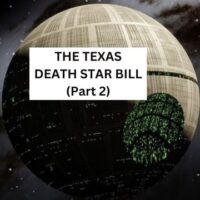Return of the Jedi?

In May, we wrote and warned about the passage of HB 2127 named the Death Star bill because it was to radically change local regulation. The name is ironic given the Death Star was fatally flawed and was destroyed by the very people it was meant to intimidate and subjugate.
The City of Houston is the first major home rule city to file suit (at 51 pages without exhibits) and did so on July 3rd. They have not asked to enjoin the law. The Death Star bill attempts to reduce regulatory power of cities statewide but especially for home rule cities, bringing them to the level of general law cities. In the 1920’s, the Texas legislature sent to the voters a proposed amendment that allowed, with the vote of the local population, the adoption of “home rule” status, which meant that a city would have the same power of the state, unless the state reserved that power unto itself. General Law cities, which are smaller than 5,000 in population, only have the power that the state grants them under the general laws of the state.
The Death Star bill is set to go into effect on September 1st because it didn’t receive 2/3rds vote in each house (not to mention it took 195 steps in the legislature to pass). Nevertheless, Houston is claiming harm now because the city will have to examine every one of its local ordinances, rules, regulations, or charter provisions to determine if they are encompassed within the bill. If so, they will have to determine if the legislature expressly authorized or preempted local laws, then determine if there is countermanding Federal law. If the answers to all these questions are against the local laws, then the city must stop enforcing or “maintaining” the local laws. This may mean repealing them or holding repealing elections for charter provisions or for local laws adopted under the initiative provisions of a charter.
Houston’s declaratory judgment lawsuit claims that the bill is unconstitutionally vague, meaning the provision of the law is too vague for the average person to understand what he is to do or not do. This law states that a city is prohibited from enforcing or maintaining a local law in a “field of regulation” “occupied by a provision” of 9 different codes. “Occupied” is not defined nor is “occupied by a provision”.
In addition to vagueness, the suit claims that the Texas Constitution prevents “field preemption” as opposed to a direct conflict between a state statute and a local ordinance. The other attacks are that the bill contravenes the Texas Supreme Court’s preemption jurisprudence, and the bill improperly shifts the burden of proof on preemption to cities to show consistency (how can a city show consistency if there is no state law in a particular field?). The suit claims the bill is a failed, unratified, void and unenforceable proposed constitutional amendment attempting to nullify the home rule amendment; unconstitutionally delegates to the courts legislative authority to define which local laws are preempted and the scope of the field of preemption (the chairman of the committee where this bill originated on the record called the bill a “living” bill) and it has no severability clause, meaning if one part fails, all parts fail.
Has Houston found its Admiral Ackbar and launched a successful attack? Is there a fatal flaw in the Death Star bill? Stay tuned for The “City” Awakens.
Please do not rely on this article as legal advice. We can tell you what the law is, but until we know the facts of your given situation, we cannot provide legal guidance. This website is for informational purposes and not for the purposes of providing legal advice.
